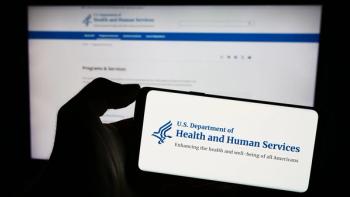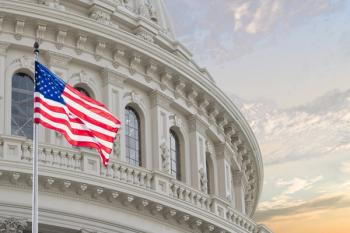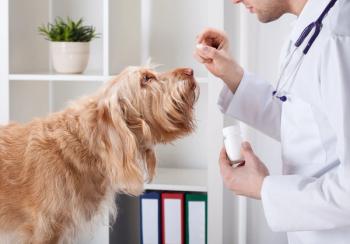
Puppy Protection Act nixed from Farm Bill
Washington-The House-Senate Farm Bill Conference has elected to remove the Puppy Protection Act (PPA) from the final Farm Bill (H.R. 2646 Farm Security Act), as of late April.
Washington-The House-Senate Farm Bill Conference has elected to remove the Puppy Protection Act (PPA) from the final Farm Bill (H.R. 2646 Farm Security Act), as of late April.
The PPA was originally added on the Senate floor without debate in avoice vote, according to Seth Boffeli, spokesman, for Sen. Harkin (D-Iowa),a primary sponsor.
"When we got into Conference, the House didn't have it in theirbill. They were pretty much adamantly opposed to having it in the bill,"he says, " because they were concerned that the regulations would betoo burdensome."
The American Kennel Club (AKC) is opposed, too.
AKC had been lobbying against the PPA since the issue first arose inOctober 2001 (See March issue, DVM Newsmagazine). The organization opposedthe bill because no hearings or debates were held and because it denieda chance for discussion of puppy protection issues and enforcement of theAnimal Welfare Act.
The AKC argued the bill would weaken the Animal Welfare Act by invadingthe privacy of breeders nationwide. The act would set the standard for howfrequently dogs could be bred and mandate that puppies be socialized byhuman exposure. An additional "three-strikes-you're-out" provisionwould revoke a breeder's license after three violations.
It's all in the wording
Dr. Gail Golab, a spokeswoman for the American Veterinary Medical Association(AVMA), says the association agrees with the intent of the bill as it wouldimprove conditions for puppies in the "mills."
"The problem is the bill as it's crafted right now," she says."There isn't enough science to justify the language that's in the bill.Unfortunately with some of the punishment provisions in the bill, there'sa real potential for that to actually impede creative methods of enforcementrather than improve it."
AVMA has repeatedly expressed its willingness to work with the creatorsof the bill to craft a more reasonable version, but to no avail, accordingto Golab.
"If they continue to not be careful about the language, then wewill continue to oppose it," says Golab. "If they want to workwith us and develop something that everybody can agree on, then yes, certainlylike any other piece of legislation, it's going to have a good chance ofpassing."
Although the American Animal Hospital Association does not have an officialposition on the PPA, Dr. Kathleen Neuhoff, current association president,says veterinarians need to protect the welfare of pets. Whether or not thisbill would serve that purpose is another question entirely. "As a smallbusiness owner, I don't like to have 'big brother' types of acts,"she says, adding the act still has its positives.
"Most of the breeders we deal with are extremely conscientious oftheir breeding dogs, because they truly care about the improvement of thebreed," says Neuhoff. "They wouldn't breach those kinds of codesanyway. For those people, this law wouldn't have an effect. Breeders obeystandards of good care that would probably be superior to anything thatwould be legislated."
She adds, "The rare individuals who are not breeding appropriatelyor who are not socializing their puppies are the ones who might be affected.Even though I don't like to have a lot of big brother regulations our mainobligation as veterinarians has to be to try to protect the welfare of thepets we serve."
The PPA is now in the jurisdiction of the Senate Agriculture Committee.
"I think we're going to continue to look at this issue to see ifwe can find out more about the impact of the proposed legislation and seeif we can't move forward on it through the committee," says Boffelli.
Newsletter
From exam room tips to practice management insights, get trusted veterinary news delivered straight to your inbox—subscribe to dvm360.




